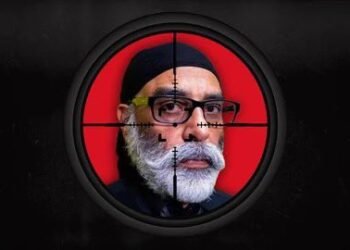With Iran vowing retaliation and the IAEA monitoring radiation levels, the international community watches nervously as the prospect of a broader conflict looms large.
BY PC Bureau
June 13, 2025 – Israel’s preemptive airstrikes on Iran’s nuclear infrastructure, including the Natanz enrichment facility, has escalated tensions in the Middle East. Iran is actively preparing a retaliatory response, while leaders across the region call for de-escalation to prevent a broader conflict. The strikes, which Israel claims targeted Iran’s nuclear weaponization program, have disrupted U.S.-led nuclear talks and sent shockwaves through global markets.
Iran’s Supreme National Security Council convened an emergency session in Tehran to finalize a response to Israel’s “Rising Lion” operation, which struck nuclear sites, missile factories, and killed key figures, including two nuclear scientists and IRGC General Hossein Salami. Iranian state media reported ongoing efforts to assess damage at Natanz, with preliminary findings suggesting “moderate” impact on centrifuge operations but no radiation leaks, per IAEA monitors cited by Reuters. Iran’s air defenses remain on high alert, with unconfirmed reports on X of ballistic missile launches toward Israel and airspace closures in Iraq and Syria.
READ: Israel Strikes Iran’s Nuclear Sites, Tehran Vows Retaliation
Israel Strikes Iran: Oil Surges, Markets Dip, Tension Soars
General Ali Fadavi, deputy IRGC commander, warned of a “proportional and severe” response, hinting at strikes on Israeli military and nuclear sites, including the Dimona reactor. Iran’s Foreign Ministry signaled it may suspend cooperation with the IAEA and reconsider its NPT membership if further attacked, escalating diplomatic fallout. A source close to Iran’s leadership told Al Jazeera that Tehran is coordinating with remaining “Axis of Resistance” allies, though Hezbollah and Houthi capabilities are weakened after recent Israeli operations.
Middle Eastern Leaders’ Reactions
Regional leaders, balancing alliances and domestic pressures, have issued varied responses, with many urging restraint to avoid a regional war:
Saudi Arabia: Crown Prince Mohammed bin Salman reiterated calls for de-escalation, warning that a wider conflict could disrupt global energy markets. Saudi Arabia denied allowing its airspace for Israeli strikes and is bolstering defenses along its Persian Gulf coast, per a statement to Bloomberg.
#BREAKING
Israel attacked Iran’s capital early Friday, with explosions booming across Tehran as Israel said it targeted nuclear and military sites.Dow, S&P 500, Nasdaq futures sink, oil surges as Israel launches strike against Iran pic.twitter.com/r84FPMo3wS
— Roh Afzaa🇵🇰 (@memon77737) June 13, 2025
Jordan: King Abdullah II, under pressure to maintain neutrality, confirmed Jordan’s airspace was not used and urged immediate UN mediation. Jordanian forces are on alert for potential Iranian missile trajectories, recalling their role in intercepting drones in April 2024, per state media.
Egypt: President Abdel Fattah el-Sisi labeled the situation “gravely dangerous” and offered Egypt as a mediator to restart U.S.-Iran talks. Cairo is coordinating with Qatar to propose an emergency Arab League summit, per Egypt’s Ahram Online.
READ: Air India Crash: Jamie Ray’s ‘Goodbye India’ Video Haunts the Internet
Turkey: President Recep Tayyip Erdogan accused Israel of “provoking chaos” and pledged diplomatic support for Iran’s right to self-defense. However, he urged both sides to avoid military escalation, emphasizing Turkey’s role as a regional stabilizer, per Anadolu Agency.
Qatar: Emir Sheikh Tamim bin Hamad Al Thani reiterated Qatar’s mediation offer, calling for an immediate ceasefire. Qatar’s foreign ministry warned that attacks on nuclear facilities risk “catastrophic consequences,” per Al Jazeera.
❗️🇮🇱⚔️🇮🇷 – A new wave of Israeli airstrikes have reportedly hit Tehran.
Futures are in deep red after Israel’s attack on Iran. Oil prices are up 13%. pic.twitter.com/rR7IbIk96w
— 🔥🗞The Informant (@theinformant_x) June 13, 2025
United Arab Emirates: The UAE maintained its call for diplomacy, with Foreign Minister Sheikh Abdullah bin Zayed urging all parties to prioritize dialogue. The UAE is quietly strengthening its air defenses, per Gulf News sources.
Syria: Syria’s transitional government, grappling with post-Assad instability, protested Israel’s use of its airspace, reporting explosions near Aleppo. It demanded UN action but avoided pledging support for Iran, per SANA.
Lebanon: Acting Prime Minister Najib Mikati warned that further escalation could destabilize Lebanon, already reeling from Israel’s anti-Hezbollah campaign. He pressed for international protection of civilian infrastructure, per L’Orient-Le Jour.
U.S. and Global Developments
The U.S. reiterated its non-involvement, with Secretary of State Marco Rubio stating that protecting American forces remains the priority. President Donald Trump, after a National Security Council meeting, posted on X that he still seeks a “peaceful resolution” but warned Iran against targeting U.S. interests. The Pentagon ordered additional naval deployments to the Persian Gulf and evacuated nonessential personnel from Iraq, signaling heightened alert.
The strikes have derailed U.S.-Iran nuclear talks scheduled in Oman, with Iran rejecting reports of a potential enrichment pause. Crude oil prices stabilized at $73.50 per barrel after an 8.3% surge, but markets remain volatile. The IAEA continues monitoring Natanz, confirming no immediate radiological risk but warning that damage assessments are incomplete.
Israel’s strikes, aimed at delaying Iran’s nuclear program, may have set back enrichment capabilities but are unlikely to eliminate them, given Natanz’s fortified underground design, per nuclear experts cited by CNN. Iran’s potential retaliation risks escalating into a tit-for-tat cycle, with Israeli cities like Tel Aviv and Haifa in range of Iran’s ballistic missiles. The weakened state of Iran’s proxies limits their role, but cyberattacks or asymmetric strikes remain possible.
Middle Eastern leaders face a delicate balance: supporting de-escalation while navigating domestic pressures and alliances. Saudi Arabia and the UAE, wary of Iran’s influence, quietly align with Israel’s concerns but fear economic fallout. Turkey and Qatar, critical of Israel, may push for broader diplomatic initiatives, while Egypt and Jordan seek to avoid being drawn into conflict.
As Iran finalizes its response, the region stands on edge. A limited Iranian strike could prompt further Israeli action, while a major attack risks drawing in the U.S. and its allies. Diplomatic channels, led by Oman and Qatar, remain open but face steep challenges. The UN Security Council is set to hold an emergency session later today, with calls for an immediate ceasefire growing louder.














